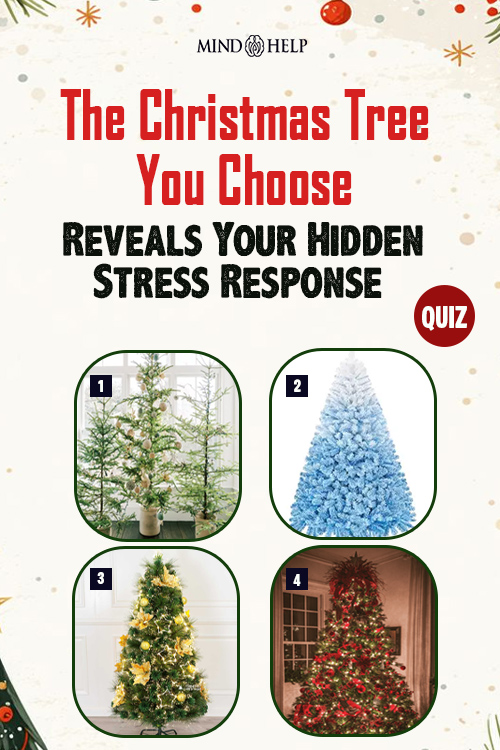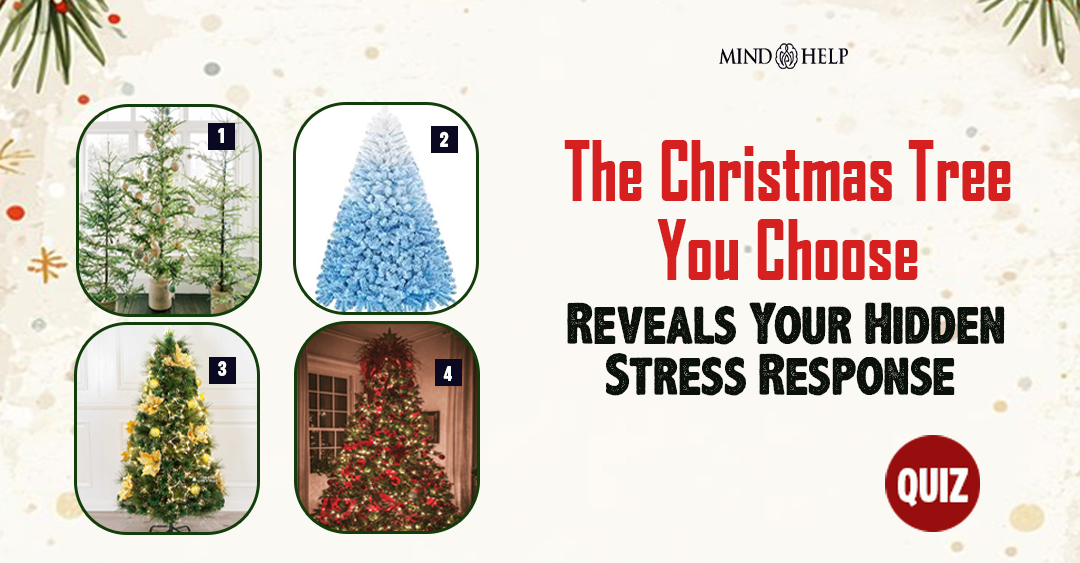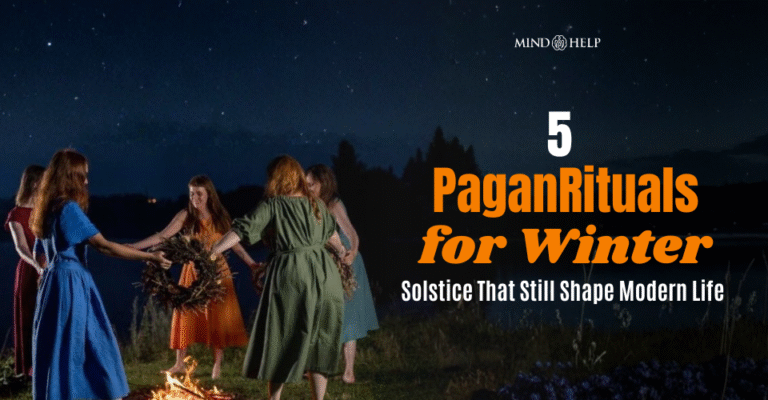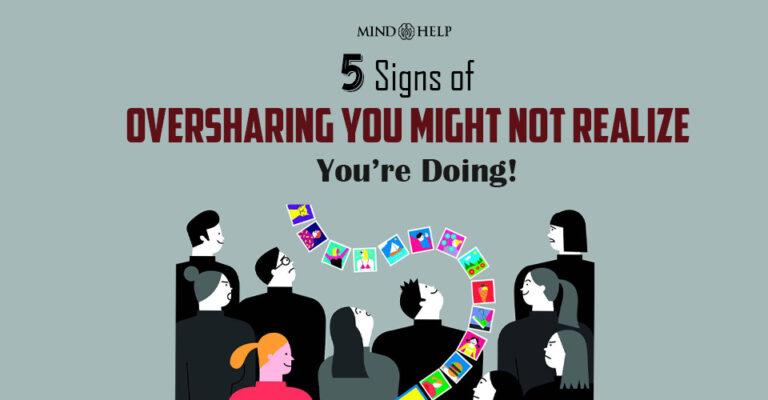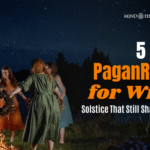Does Christmas fill you with warmth—or quietly activate your nervous system? If the holidays leave you feeling more activated than relaxed, this Christmas Personality Quiz can help you uncover the stress patterns your mind and body slip into automatically, especially during emotionally charged seasons.
The holidays often sparkle with lights, warmth, and connection… yet beneath the surface, they can also trigger tension, sensory overload, social expectations, and dormant emotional memories. What many people don’t realize is that these reactions often emerge from deeply rooted trauma response types—survival instincts the nervous system learned long ago.
These responses tend to show up when we’re overwhelmed: fight, flight, freeze, and fawn. Most of us enact a blend of them, but one tends to dominate—especially during high-pressure moments like festive gatherings, family reunions, or year-end stress.
Surprisingly, your instinctive attraction to a particular Christmas tree can offer subtle insights into these patterns.
This visual quiz works by engaging your intuitive system—the part of your mind that responds before logic steps in. Quick visual choices can mirror the emotional coding beneath your conscious awareness.
In this Christmas Psychology Quiz, you simply look at four Christmas trees and choose the one that resonates with you instantly. This simple act can reveal whether your nervous system tends to confront, retreat, pause, or appease when faced with stress.
This isn’t about diagnosis—it’s about self-reflection. It’s a gentle, engaging way to explore how your stress patterns, shaped by lived experiences, affect your behavior and emotional reactions. And for many, these patterns can evolve into maladaptive coping strategies if they get overused.
Understanding the Trauma Response Types in This Fight Flight Freeze Fawn Quiz
These four core responses helped you survive overwhelming moments in the past. But when they become automatic or rigid, they may show up in situations where they no longer serve you. Here’s a quick psychological look:
Fight Response
This instinct activates when your body feels the need to take charge. You confront discomfort fast, seek solutions immediately, and step into protector mode. While this makes you courageous and assertive, it can also create tension—especially when the underlying drive is the need to stay in control.
Flight Response
Here, the nervous system urges you to move away from stress. Distance, freedom, and space help you regain emotional stability. You think before reacting and avoid unnecessary conflict. During overwhelm, you may drift, disconnect, or become restless—not out of avoidance, but as a way to restore inner calm.
Freeze Response
This is the body’s instinctive pause button. When overwhelmed, you may become quiet, inward, or indecisive. Your system temporarily halts action to make sense of the moment. Even if you appear calm, your internal world may feel overloaded. This response is a protective processing mode, not passivity.
Fawn Response
This response centers around harmony. You read others’ emotions, smooth tension, and prioritize peace—sometimes at your own expense. Agreeableness becomes a safety strategy. While it keeps environments calm, it can silence your own needs and boundaries. It’s rooted in a longing for connection and security.
Are you ready to explore which instinct your nervous system leans on the most?
Look at the four Christmas trees below and choose the one that feels right—in the first moment.
Your first instinct often reveals more than you expect about your stress response patterns, trauma imprints, and emotional coping habits.
Read: What You See First Test: Tiger/Lion or Butterfly – Your Choice Reveals Your Psychological Archetype
Christmas Personality Quiz: Choose a Christmas Tree and Reveal Your Hidden Stress Response
Tree A — The Fighter Response
Choosing Tree A suggests a dominant fight response. You tend to confront stress head-on, taking charge before things escalate. Your presence is strong, focused, and unwavering.
You may relate to:
- Addressing problems quickly
- Being the stabilizer during crises
- Valuing straightforward communication
- Feeling reactive or overly intense when overwhelmed
At your core:
Your impulse to fight comes from protection, not aggression. It’s your way of defending what matters.
Tree B — The Flight Response
If Tree B drew your attention, you may lean toward the flight response. You function best with space and mental clarity, and when overwhelmed, you instinctively look for emotional or physical distance.
You may relate to:
- Needing solitude to process emotions
- Thinking before acting
- Steering clear of conflict
- Feeling restless or eager to escape under pressure
At your core:
You’re not running away—you’re safeguarding your peace and rebuilding clarity.
Tree C — The Freeze Response
Selecting Tree C suggests a primary freeze response. Stress triggers an internal pause, giving you time to observe, process, and regain equilibrium before responding.
You may relate to:
- Needing extra time for decisions
- Observing quietly before taking action
- Appearing calm despite inner overwhelm
- Feeling stuck, numb, or unsure during stress
At your core:
Your stillness is a protective buffer—an instinctive reset that helps you regain stability.
Tree D — The Fawn Response
If Tree D resonated, you may rely on the fawn response. You instinctively soothe, mediate, and maintain emotional harmony. You sense others’ moods deeply and prioritize connection.
You may relate to:
- Prioritizing peace in relationships
- Being highly attuned to emotional shifts
- Avoiding conflict through agreeableness
- Downplaying your own needs under pressure
At your core:
Your instinct to keep the peace is a survival strategy shaped by a desire for safety and acceptance.
The Fight Flight Freeze Fawn Test—especially in this Christmas-themed format—is not a clinical tool but a reflective exercise. Your result from this Christmas Personality Quiz can help you understand your automatic stress responses and the coping styles that surface when life feels overwhelming.
